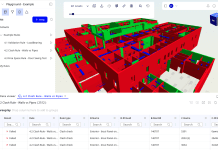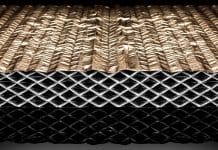Actis specification experts will take part in LABC’s monthly technical roadshows over the next year as part of the CPD partnership
Insulation specialist Actis has renewed its CPD partnership with LABC, continuing the beneficial six-year relationship between the two organisations.
LABC’s seminars cover topics relevant to architects, specifiers, builders and building control officers in a mixture of face-to-face and online events.
Members of the Actis specification team will take part in LABC’s monthly technical roadshows, focusing on thermal efficiency.
Continuing almost six years of successful seminar training
The LABC sessions last around two and a half to three hours and have provided CPD training to over a thousand delegates across England and Wales in the last year alone.
Actis UK and Ireland sales director Mark Cooper said: “We’ve been running CPD training at LABC technical seminars since 2018 and we’re delighted to continue to support the construction community in this way.
“The sessions, which cover a range of topics, are always informative and interesting. Working as a CPD partner means we can offer valuable advice which will help builders and specifiers comply with building regulations as we move towards net zero.”
The CPD partnership is part of Actis’s wide range of training resources
In addition to the 20-minute sessions it offers via the LABC roadshows, Actis has devised a number of full length CPD training courses including RIBA-approved modules on how to comply with changes to Part L and prepare for the Future Homes Standard – Tomorrow’s Insulation Solutions for Future Homes Standard – and Addressing the Performance Gap with Reflective Insulation.
Another of its popular CPD sessions is on Proven Compliant Systems.
Actis insulation is easy to install and suits a variety of thermal needs
Actis’ insulation, vapour control and breather membranes have been praised by users for their cleanliness, ease and speed of installation, lack of waste, lightness and ease of transportation as well as their impressive thermal performance.
Their flexibility and ability to bend around corners and be squeezed into gaps means they are excellent at counteracting thermal bridging and ensuring air tightness.




![[Video] Fireco: 80 new fire doors required for residential flats in London](https://www.pbctoday.co.uk/news/wp-content/uploads/2025/04/2024-06-01-Lords-view-one_1200x750_004-218x150.webp)









